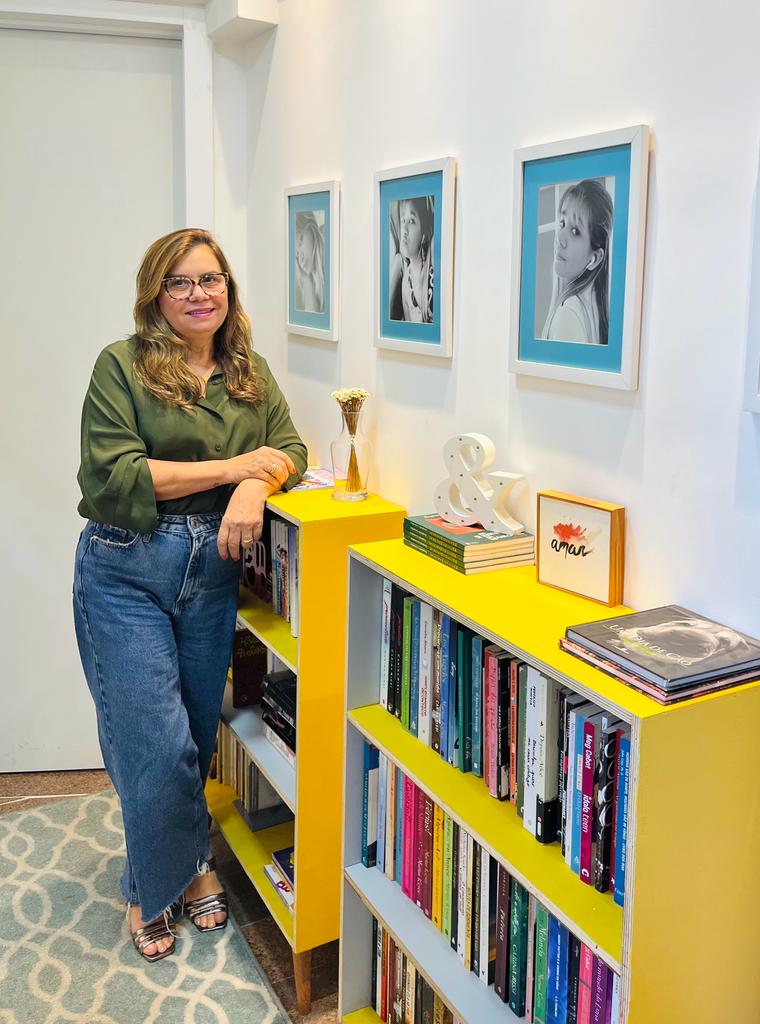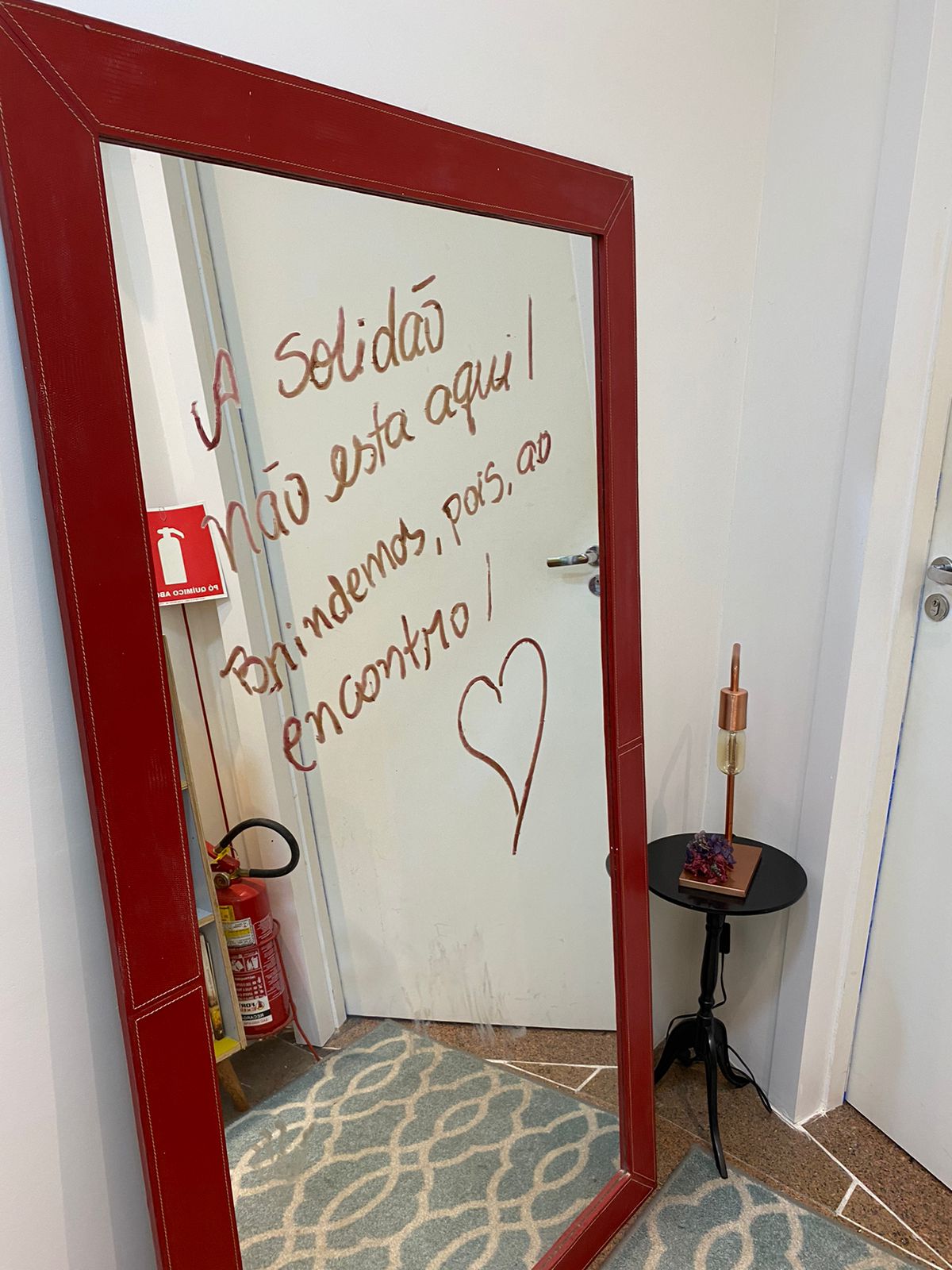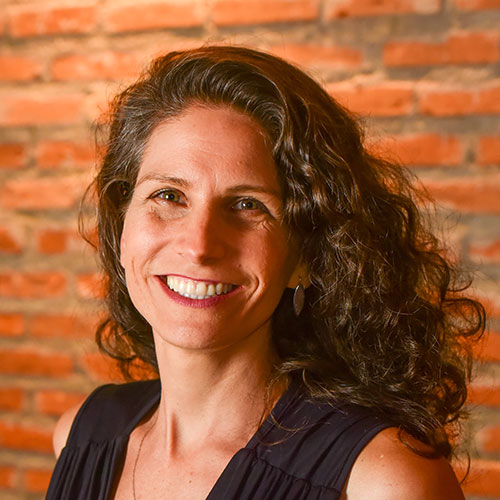It is possible to prevent suicide: Instituto Bia Dote offers lectures and free psychotherapeutic care in Fortaleza, Ceará
The stigma linked to suicide is one of the main factors that hinder its prevention. To break with this stigma, it is necessary to shed light on this topic that is still seen as taboo today.


Bia Dote committed suicide at the age of 13. It was the pain of loss that made her mother, Lucinaura Diógenes, find the Institute that bears her name. “Talking about suicide is necessary,” Lucinaura tells me. “Not only to calm the hearts of those who felt the pain of loss but mainly to prevent new cases.”
This is a common story among projects linked to suicide prevention: giving new meaning to a death carried out deliberately by a loved one in the family. The phenomenon is complex and can affect individuals of different origins, genders, cultures, social classes and ages. Therefore, it’s a public health problem that affects a considerable portion of the population, in Brazil and around the world, and which could be avoided with information and public policies.
According to the latest survey by the World Health Organization (WHO), more than 700,000 suicides have been recorded worldwide. It is known, however, that there are many underreported episodes. Thus, it is estimated that cases exceed more than one million. In Brazil, the Ministry of Health records approximately 14 thousand cases per year, that is, on average 38 people commit suicide per day in the country.
Instituto Bia Dote
The Instituto Bia Dote (IBD) was created in 2013, five years after his death. “When Bia committed suicide, it had a huge impact. There were no signs, no evidence that something was not going well, everything was calm, going according to what we expected from a family system, from our projects…”, recalls Lucinaura.
For her and her family, it was difficult to face the death of her daughter, a happy and healthy young woman. The institute was created precisely to accommodate that mourning, which did not find space to be lived: “In addition to the feeling of guilt, we had difficulty talking about what happened. It’s as if her life was just about death by suicide,” she says.
The family then thought about creating a support group for families bereaved by suicide and holding awareness talks about prevention. The first lectures were in schools in Fortaleza, about risk factors, protection, warning signs and forms of reception.
Psychotherapeutic care is essential
Those who attended the lectures, however, said that it was difficult to access psychological care, recalls Lucinaura. That’s where the idea of opening the social clinic came from. Specialized care began in 2015, exclusively for people with suicidal ideation or behaviour. Demand for the service grew quickly and was soon expanded.
Currently, the clinic serves around 100 people in individual psychotherapy, aimed at the most urgent cases. There are also two groups for those bereaved by suicide; a group for LGBTQIA + people, which works to debate cinema and sexuality; and finally, the Clube de Leitura, which is dedicated to works focused on death and mourning.
On Saturdays, an online psychological service is also held. The IBD team is made up of volunteer professionals and everything is offered free of charge to the population. In-person services are aimed at people in the metropolitan region of Fortaleza. Online service can be done by anyone, regardless of where they live.

Young and old
According to data from the Ministério da Saúde (Health Ministry), suicide is considered the fourth cause of death among young people aged 15 to 29 (after traffic accidents, tuberculosis and interpersonal violence). The elderly are also strongly affected by the phenomenon. Among young people, explains Lucinaura, the risk factors that lead to suicide become greater due to the lack of maturity in dealing with suffering and the difficulty in asking for help.
“In adolescence, there is a great rush to resolve a situation, everything is more impulsive, often the person does not have psychological flexibility, they do not see several possibilities for resolving that problem,” she says. Among the elderly, the suicide rate is higher than the attempted one.
“Often, the elderly are in a vulnerable situation, they face the issue of losing several social functions, isolation and health, which is weakened. Therefore, a suicide attempt by the elderly is high risk”, explains Lucinaura.
For her, suicide is a form of communication that something is not right, but that it ends up being dysfunctional, a great risk to life. And she warns: “we are increasingly serving younger people. Situations arise at the clinic involving children, not just teenagers.”
Mental health
The World Health Organization recommends that 90% of suicide cases are related to a mental disorder event, which could be diagnosed and treated. Related mental disorders include depression, bipolar disorder, schizophrenia and borderline disorder.
Lucinaura reminds us, however, that not all people with mental illness experience suicidal thoughts. For her, the context of vulnerability has a strong influence on the phenomenon. In common, there is a feeling of hopelessness.
“A person who suffers prejudice, for example, gender, race or bullying, is not necessarily experiencing a mental disorder. Or someone goes through very intense psychological suffering, as in a situation of mourning. These people may have suicidal ideation and behaviour,” she explains.
Studies have also indicated that there are genes related to suicidal ideation. “Even so, genes are not determinant, environmental and social conditions can cause this condition to manifest itself or not, everything will depend on other factors”, warns Lucinaura.
Yellow September, taboo and religion
For Lucinaura disseminating information is essential to reduce stigmas. “Many religions say that suicide is a sin, that it is unforgivable and whoever commits it goes to hell. But how is a family going to work on their grief, work on that person’s honour, knowing that they went to hell?! So there’s a whole taboo that needs to be broken!”, he argues.
She believes that campaigns like Setembro Amarelo shed light on this issue and disputes the notion that talking about suicide could have the opposite effect, that is, instead of preventing, encouraging: “When a person is well, they don’t get sick, they don’t will commit suicide. And when she’s bad, she notices. We see this a lot here. The person themselves calls asking for help, saying they are thinking about killing themselves,” she says.
Therefore, the campaign has brought alerts. “It’s not a lack of God, it’s serious! We need to see how an illness, suffering, and that’s what the campaign helps to show”, says Lucinaura. Providing support in urgent situations is also essential. “To this end, the campaign should advance the information-to-action phase and work effectively with public suicide prevention and post-prevention policies,” she argues.


Suffering is part of life
“Suicide will never cease to exist, because it is part of humanity”, says Lucinaura. But it is possible to prevent it. The most important thing is to understand that suicide is related to suffering and that there are ways to deal with emotions, both positive and negative.
“Often, a person who is faced with very intense suffering imagines that there is no way to escape that situation and that they can no longer live that way. So we need to learn how to deal with difficult situations. Understanding that there will be sadness, anger and fear throughout life, that it is not just joy and love,” she explains.
There are several ways to regulate suffering. “The problem happens when it is regulated in a dysfunctional way”, she warns. Among teenagers, self-harm ends up being a way of dealing with emotions, for example. “It is a completely dysfunctional form of regulation. That’s why we need to start, from childhood, showing that suffering is inevitable, but it passes, suffering is not definitive”, says Lucinaura.
For her, many people suffer because of the way they interpret certain situations and not because of the situation itself. Comparison with other people and feelings linked to frustration, failure and rejection contribute to misinterpretations. Social networks, in particular, tend to distort the understanding of life:
“The networks show our best moments, we always appear smiling. And those who are in a difficult situation have the feeling that it works out for everyone, except for them. This causes the person to have a cognitive distortion about their condition”, she concludes.
Suicide prevention
Some signs indicate when someone may need help:
- Suddenly leaving your life organized, such as donating assets, closing bank accounts or taking out life insurance.
- Post on social media with images, music and poetry talking about death.
- Asking to take care of a pet or someone you love are other signs.
- A sudden change in behaviour is also an indication. For example, when the person is very extroverted and isolates themselves, with great sadness in this isolation, or when the person is reserved, and suddenly, they rushes everyone as if it were a farewell.
- When someone says they don’t want to live anymore, or that the best thing would be to die.
In all these cases, it is necessary to ask the person if they are thinking about killing themselves and have the responsibility to listen to what they have to say and seek help. It is also worth remembering that not all people with suicidal ideation or behaviour show signs.
Want to support this cause?
The Instituto Bia Dote is maintained with the family’s own resources, so donations are welcome, as are volunteers. Volunteers can work in psychotherapeutic care and on social media. For more information and donations, contact us via email, WhatsApp or Instagram.
WhatsApp: +55 (85) 99842-0403
The website can be accessed here.



